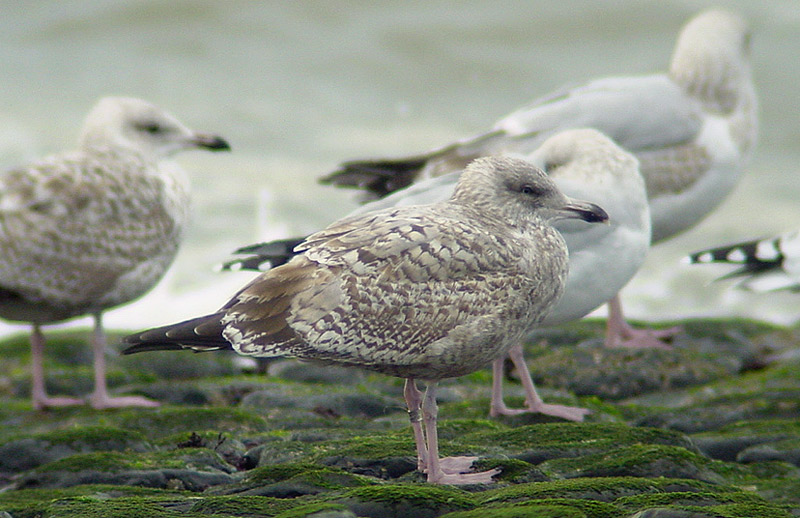 Herring Gull- Zilvermeeuw (argentatus & argenteus)
Herring Gull- Zilvermeeuw (argentatus & argenteus)
(last update:
Herring Gull plumages:
hg 1cy July
hg 1cy August
hg 1cy September
hg 1cy October
hg 1cy November
hg 1cy December
hg 2cy January
hg 2cy February
hg 2cy March
hg 2cy April
hg 2cy May
hg 2cy June
hg 2cy July
hg 2cy August
hg 2cy September
hg 2cy October
hg 2cy November
hg 2cy December
hg 3cy January
hg 3cy February
hg 3cy March
hg 3cy April
hg 3cy May
hg 3cy June
hg 3cy July
hg 3cy August
hg 3cy September
hg 3cy October
hg 3cy November
hg 3cy December
hg sub-ad January
hg sub-ad February
hg sub-ad March
hg sub-ad April
hg sub-ad May
hg sub-ad June
hg sub-ad July
hg sub-ad August
hg sub-ad September
hg sub-ad October
hg sub-ad November
hg sub-ad December
hg ad January
hg ad February
hg ad March
hg ad April
hg ad May
hg ad June
hg ad July
hg ad August
hg ad September
hg ad October
hg ad November
hg ad December
|
Herring Gull 5.365.084 2cy (argenteus), November 16 2002, Westkapelle, the Netherlands (51.33N 03.25E). The complete moult in argenteus is finished by October and overlaps with the partial autumn moult which starts in September and often include scapulars, a few inner wing-coverts and upper tertials. The head shows neat fine streaking and the under-parts and rump are pale, mottled with brown. The scapulars and mantle are replaced for third generation feathers, finishing with the replacement of the rear lowest scapulars. The pattern of these third generation scapulars is more or less similar to the anchor pattern of the second generation feathers. Simultaneous with replacement of the lowest scapulars, argenteus moult some of the lower upper scapulars in November. By October, argenteus the new scapulars may appear adult-like pale grey or grey-based. By November, argenteus has finished the primary moult. The second generation tail-feathers show a clear-cut blackish tail-band with only isolated blackish markings on the white basal half. By early October, argenteus finish the complete moult, with the central greater coverts and outer lesser coverts moulted last. Between September and November, the average 2cy argenteus start a simultaneous partial autumn moult in the wing-coverts, including the upper tertials, some median and lower lesser coverts and often the inner greater coverts. This Dutch 2cy argenteus was ringed as pullus by Roland-Jan Buijs, at the industrial emplacement "Vlissingen-Oost / Quarleshaven" in the SW of the Netherlands on June 30 2001. It has P10 fully grown and is illustrative for argenteus, replacing wing-coverts in the partial moult: only two greater coverts (#2-3) moulted, with all other coverts and tertials still old second generation. Note the yellow-brown iris.
|
